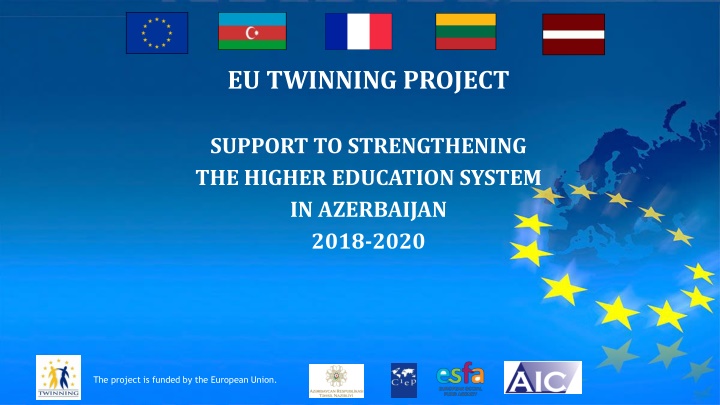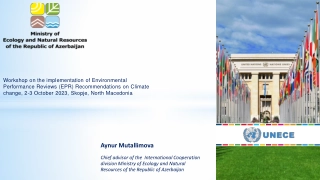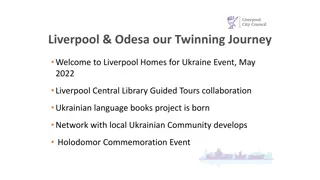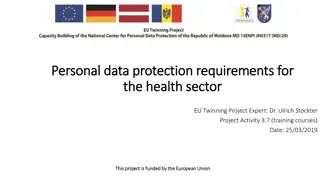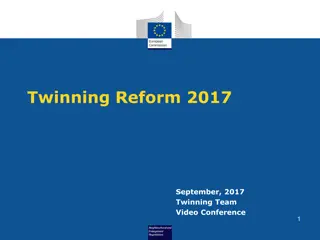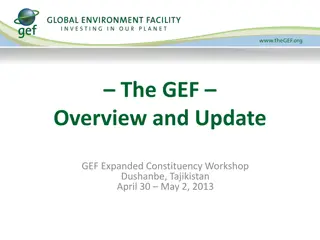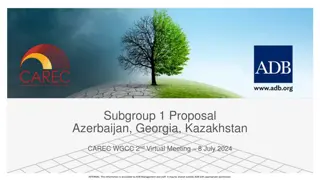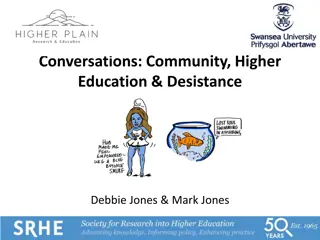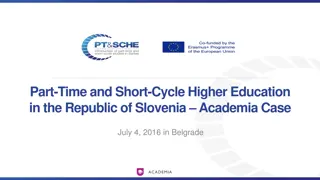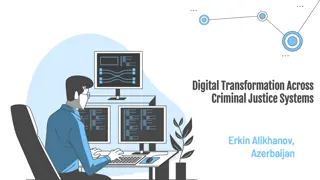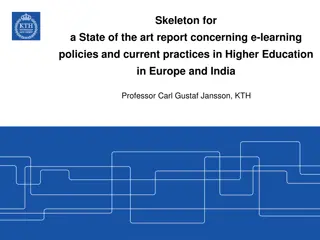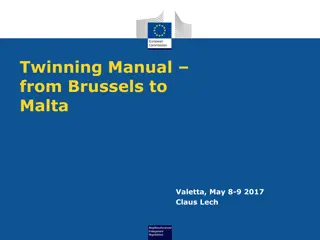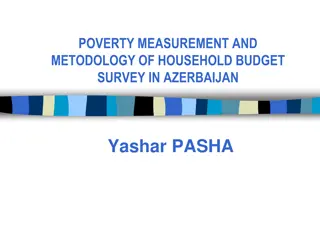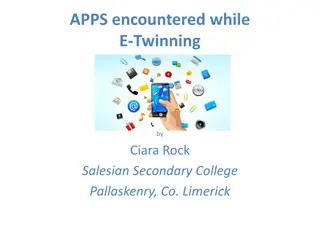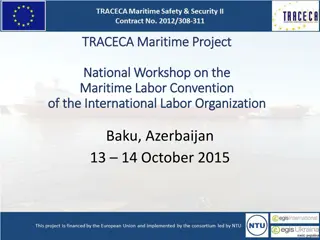Twinning Project Supporting Higher Education System in Azerbaijan
This project, funded by the European Union, aims to strengthen the higher education system in Azerbaijan through external review, methodology development, and expert collaboration. General principles and expert group compositions are highlighted, emphasizing neutrality, collaboration, and adherence to quality assurance standards.
Download Presentation

Please find below an Image/Link to download the presentation.
The content on the website is provided AS IS for your information and personal use only. It may not be sold, licensed, or shared on other websites without obtaining consent from the author.If you encounter any issues during the download, it is possible that the publisher has removed the file from their server.
You are allowed to download the files provided on this website for personal or commercial use, subject to the condition that they are used lawfully. All files are the property of their respective owners.
The content on the website is provided AS IS for your information and personal use only. It may not be sold, licensed, or shared on other websites without obtaining consent from the author.
E N D
Presentation Transcript
EU TWINNING PROJECT SUPPORT TO STRENGTHENING THE HIGHER EDUCATION SYSTEM IN AZERBAIJAN 2018-2020 The project is funded by the European Union.
General principles of external review. The working principles of experts Asnate Ka oka, Academic Information Centre The project is funded by the European Union.
Methodology for external review of study programmes Criteria and indicators for assessment of study programmes (mission 3.1) Methodology for self-evaluation of study programmes for the higher education institutions (mission 3.3.2) Methodology for external review of study programmes for the agency and experts (mission 3.3.1)
General principles of a review Unbiased and fact-based findings Confidentiality Respect towards other parties involved in the assessment process Neutrality Collaboration
The agency Designs its procedures in compliance with the Standards and guidelines for quality assurance in the European Higher Education Area (ESG) Designs methodology/ guidelines/ handbook for preparation of self- assessment report
The agency (2) Designs methodology/ guidelines/ handbook for performing external review (including the preparation of review report) Establishes the group of experts Organises the work of experts Organises the work of the decision- making body (optional)
Composition of the experts group Academic experts (from the evaluated discipline) Employers/professional practitioners (from professional field targeted by the programme) Student experts (from the evaluated discipline) Education experts (specialists in teaching and learning and/or curriculum development) Quality management experts Composition of the expert group for each procedure fixed in the methodology/ guidelines
Composition of the experts group: Latvian example Accreditation of higher education institutions directions 7 experts 5 experts Accreditation of study Licensing of study programmes 3 experts Set mandatory competencies Representative of students One expert from academic environment Representative of students Representative of labour market One expert from labour market At least two international experts At least one international expert Representative of students Observers ( students, trade union of education and science employees, decision making body) Observers ( students, trade union of education and science employees, decision making body) Observers ( students, trade union of education and science employees, decision making body)
Selection of experts A group of experts with diverse background/ experiences/ competencies International VS national experts Open call with published selection criteria and application procedure Representatives of stakeholders selected by the agency OR nominated by the stakeholder organisations
Selection of experts: Latvian example International vs local International Local Different experience to learn from Knowledge of the national system and legislation Better dynamics within the review team More credibility to the review process Potential situations of conflict of interest Assessment process is less expensive Assessment process is more expensive Translations of documents are required Documents in local language can be used The higher education institutions and the agency are better recognised abroad
Selection of experts: Latvian example Selection criteria Education which complies with EQF level 7 (starting from master or specialist diploma) Research experience and publications Experience in implementing higher education study programmes Experience in developing/organising study process within a higher education institution
Selection of experts: Latvian example Selection criteria Experience in internal quality assurance of higher education Experience in assessing the scientific activities of a higher education institution Knowledge about the Bologna process and of the ESG English language
Selection of experts: Latvian example Selection procedure Academic experts are selected by the agency from a database Employer representatives are nominated by the Employers Confederation of Latvia and approved by the agency Student representatives are nominated by the Student Union of Latvia and approved by the agency
Conflict of interest: Latvian example A conflict-of-interest does not occur if: 1) the expert is not employed and has no other contractual relations with the higher education institution, a study programme of which is being assessed, has not been employed by this higher education institution within the last 2 years before the assessment on-site visit; 2) the expert is not a member of a decision- making or advisory institution of the higher education institution, a study programme of which is being assessed;
Conflict of interest: Latvian example (2) 3) the expert does not study in the higher education institution, a study programme of which is being assessed, and has not graduated from this institution within 2 years before the on-site assessment visit; 4) the person involved in the implementation of the study programme and the relevant study direction to be assessed, is not the father, mother, grandmother, grandfather, son/daughter, grandson/granddaughter, adoptee, adoptive parent, brother, sister, stepbrother, stepsister or spouse of the expert.
Tasks of the experts group Review of the methodologies and self-assessment documents before the site visit Participation in the site visit Contribution to the review report (joint/separate)
Tasks of the experts group: Latvian example Chair of the panel Secretary of the panel Experts + coordinator from the Agency
Thank you for attention! asnate.kazoka@aic.lv www.aika.lv
